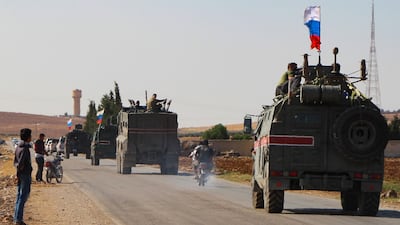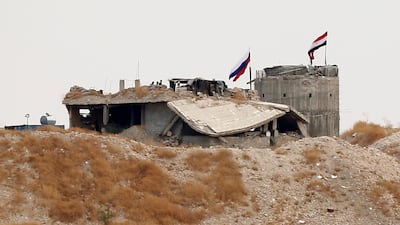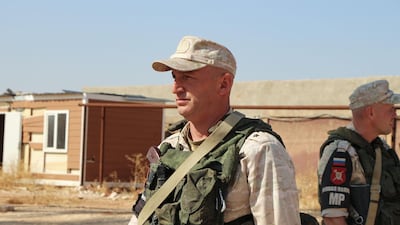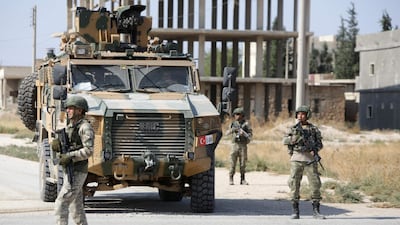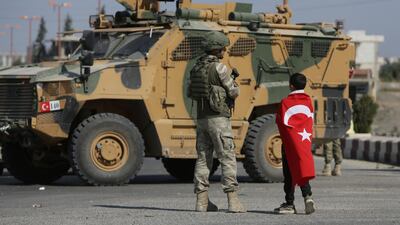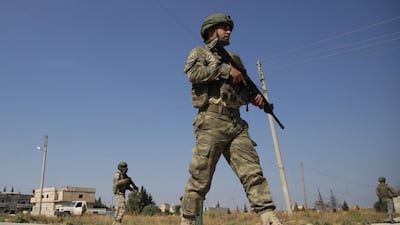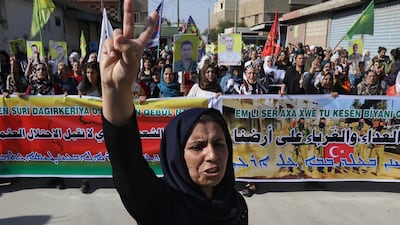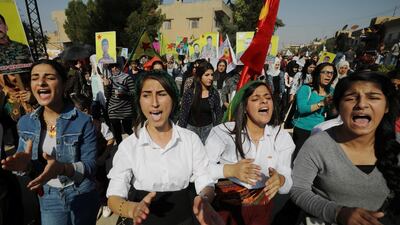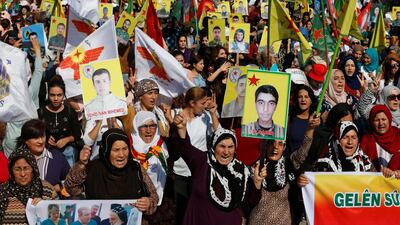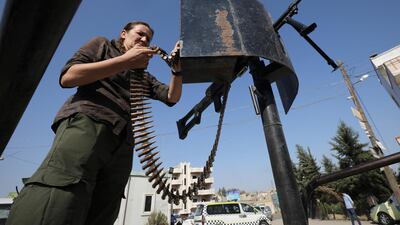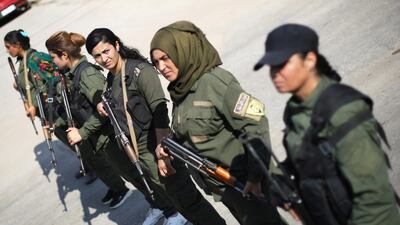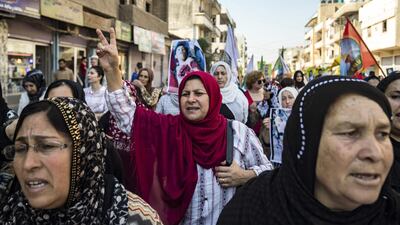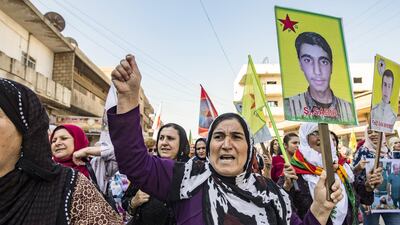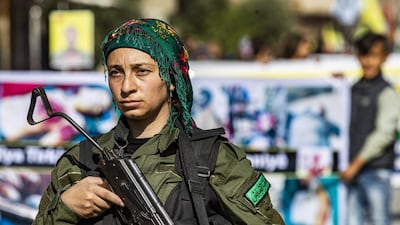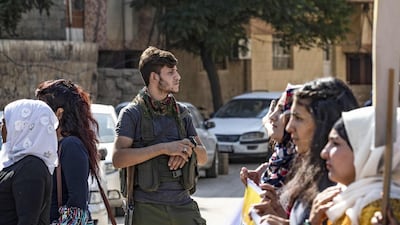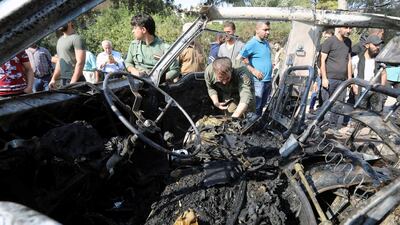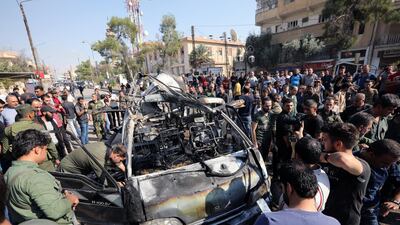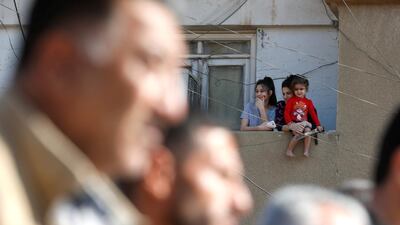Russian military forces crossed the Euphrates River in Syria and moved into positions near the border with Turkey on Wednesday under a deal for the withdrawal of Kurdish forces.
The Russian defence ministry said in a statement that a convoy of Russian military police had crossed the river at noon local time and "advanced towards the Syrian-Turkish border".
The deal, reached between Russia and Turkey on Tuesday, will see Russian military police and Syrian border guards "facilitate the removal" of Kurdish People's Protection Units (YPG) fighters and their weapons from within 30 kilometres of the border.
This withdrawal must be finalised within 150 hours.
The defence ministry published a map showing where 15 Syrian checkpoints would be set up along the border.
News agency RIA Novosti quoted the ministry as saying military police had met with officials from the border town of Kobani and were due to start patrolling there.
The Turkey-Russia agreement was reached after marathon talks between President Recep Tayyip Erdogan and President Vladimir Putin in Russia on Tuesday.
It will also see Turkey preserve a "safe zone" inside Syria about 120km-long and 32km deep. Russia and Turkey will eventually launch joint patrols along the zone.
Russian military police and Syrian border guards are to "facilitate the removal" of Kurdish People's Protection Units (YPG) fighters and their weapons from within 30 kilometres of the Turkish-Syrian border, as per the Sochi deal.
The Syrian Observatory for Human Rights, a Britain-based war monitor, said the area of the "safe zone" was calm on Wednesday.
In the Kurdish-controlled city of Qamishli -- excluded from the Sochi agreement -- hundreds demonstrated against the deal on Wednesday, saying it amounted to ethnic cleansing and genocide.
"This deal serves the interests of foreign powers and not the interests of the people," said Talaat Youndes, an official with the Kurdish administration.
"Turkey's objective is to kill, displace and occupy the Kurds," he said, as protesters waved flags and chanted slogans against Ankara's invading force.
Turkey's October 9 assault was made possible by a pullback of US troops deployed along the border as a buffer force between their NATO ally Turkey and the Kurdish fighters of the SDF.
The withdrawal by their erstwhile ally left the Kurds completely in the lurch, forcing them to turn to the Damascus regime for protection from an expanded Turkish offensive.
Government forces, who are backed by the Russian military, rushed north within days, ostensibly to pin back Turkish-backed rebels but also to reclaim control of swathes of territory that the regime started leaving in 2012.
Damascus has previously accused Kurds of treason over their alliance with Washington and repeatedly said it would eventually restore government control over all parts of Syria.
The Kremlin on Wednesday accused Washington of betraying the Kurds by withdrawing its forces and leaving allies alone in the face of a Turkish offensive.
"The US were the closest allies for the Kurds for several years. In the end the US abandoned the Kurds, effectively betraying them," Kremlin spokesman Dmitry Peskov told Russian news agencies.
Turkish Foreign Minister Mevlut Cavusoglu earlier Wednesday said that Moscow had assured Ankara it would not allow Syrian President Bashar al-Assad's regime to cooperate with Kurdish fighters.
But he ruled out any direct talks with the Syrian regime for now.
Despite being on the opposite sides of the Syria conflict, Turkey and Russia have been working together to find a solution to the war.
Tuesday's agreement said the two countries were determined "to combat terrorism in all forms... and to disrupt separatist agendas in Syrian territory".
The deal said efforts would also be launched for the return of refugees to Syria "in a safe and voluntary manner".
Ankara has said some of the 3.6 million Syrian refugees in Turkey can be rehoused inside the safe zone.
Also on Wednesday, more than 100 ISIS prisoners escaped in Syria in the chaos since Turkey's incursion, a senior US official said.
"We would say the number is now over 100. We do not know where they are," James Jeffrey, the State Department pointman on Syria, told the House Foreign Affairs Committee when asked about the detainees.
